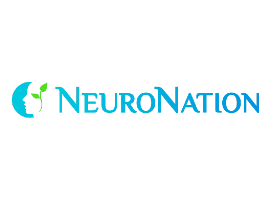Scientists have for long agreed on the various benefits of sleep to our well-being. One important function of sleep is the consolidation of memories about the things we’ve learned and experienced during the day.
These findings are based on studies that have investigated cognitive performance between two days, with or without a good night’s sleep. Obviously, sleep-deprived individuals perform in tasks worse the next day than people who slept.
Several mechanisms have been found to contribute to the beneficial effects of sleep – such as the pruning and strengthening of the connections between neurons – but it has not been clear, whether several hours of nocturnal sleep is required or whether also daytime napping can have beneficial effects on cognition. A new Harvard study could recently provide insights.
Study shows: A nap keeps you sharp and healthy
In order to answer this question, researchers from the Harvard University and Harvard Medical School had participants perform a visual perception task in four 60-minute sessions. In the task, while they had to keep their eyes fixated on the center of the computer screen, other figures were presented in the periphery and the participants had to recognize what kind of figures they were.
After the second session, some of the participants were allowed to take a short nap of 30 to 60 minutes. While the participants who were not allowed to nap showed a linear performance decrease, the participants who took a short nap (30 minutes) stayed on the same performance level through sessions, and the participants who took a long nap (60 minutes) even improved their performance.
The results clearly showed the beneficial effect of a nap on cognitive performance and the general psychological well-being. On a smaller scale, they show that sleep, even in small amounts, increases learning and memory performance. On a larger scale, the authors conclude that results give important insights into the prevention of burnout symptoms.
This is because burnout has been described as “increased irritation and frustration” and “decreased effectiveness” after a prolonged cognitive effort. This feeling has been suggested to stem from fatigue in brain regions that are continuously engaged when the person is performing the same task. Sleeping gives these regions “a break” and a chance to restore their processing capacities. The study results again show that even a short period of sleeping – that is, taking a nap – has a great impact on the regeneration of the brain and consequently on improved cognitive performance and well-being.
Protect your Brain with NeuroNation
Sleeping is great for filling up your resources, but there is more to a fit and healthy brain. Exposure to burnout is highly correlated with our cognitive reserves. A study by Dr. Stefan Diestel from the University of Dortmund, Germany could show a 50% increased risk of stress-related diseases, f.i. burnout, for employees with non-trained cognitive reserves.
To help you get the right training, we collaborate with neuroscientists and psychologist and develop personalized courses, tailored to your unique skills and profile.
Keep yourself fit by creating a premium account today and start your first personalized course.


